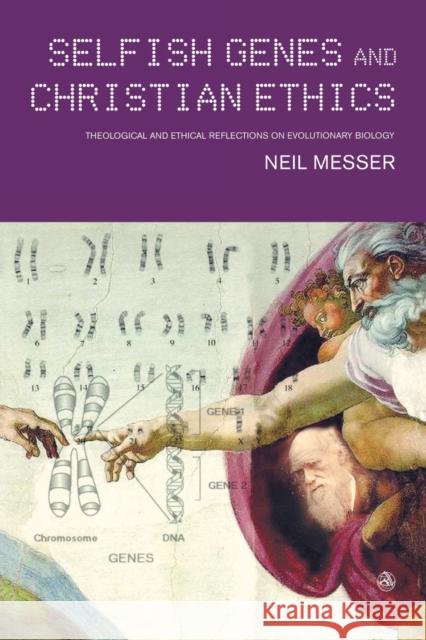Selfish Genes and Christian Ethics: The Theological-Ethical Implications of Evolutionary Biology » książka
Selfish Genes and Christian Ethics: The Theological-Ethical Implications of Evolutionary Biology
ISBN-13: 9780334029960 / Angielski / Miękka / 2007 / 290 str.
Selfish Genes and Christian Ethics: The Theological-Ethical Implications of Evolutionary Biology
ISBN-13: 9780334029960 / Angielski / Miękka / 2007 / 290 str.
(netto: 162,86 VAT: 5%)
Najniższa cena z 30 dni: 170,53
ok. 16-18 dni roboczych
Dostawa w 2026 r.
Darmowa dostawa!
The evolutionary origins of human beings, and in particular the origins of human morality, have long attracted debate and speculation, not only in the academic community but also in popular scientific literature and in society at large. Evolutionary accounts of human behaviour and morality have great imaginative power, with the attendant risk that they sometimes stray beyond the bounds of scientific theory to become powerful popular myths. In Selfish Genes and Christian Ethics, Neil Messer challenges this tendency. He offers a careful survey of the questions raised by evolutionary accounts of ethics and morality and of some answers offered in the current literature. He develops an extended, critical theological response to these discussions, arguing that the Christian tradition offers rich resources not only for addressing these questions cogently and coherently, but also for re-framing the discussion of evolution and ethics in interesting and productive ways. This is a valuable resource for anyone engaged in the study of theology, enabling the reader to consider both theoretical and practical issues raised by evolutionary discussions of ethics and morality. Dr Neil Messer is Reader in Theology and Religious Studies at the University of Winchester.
The evolutionary origins of human beings, and in particular the origins of human morality, have long attracted debate and speculation, not only in the academic community but also in popular scientific literature and in society at large.Evolutionary accounts of human behaviour and morality have great imaginative power, with the attendant risk that they sometimes stray beyond the bounds of scientific theory to become powerful popular myths.In Selfish Genes and Christian Ethics, Neil Messer challenges this tendency. He offers a careful survey of the questions raised by evolutionary accounts of ethics and morality and of some answers offered in the current literature. He develops an extended, critical theological response to these discussions, arguing that the Christian tradition offers rich resources not only for addressing these questions cogently and coherently, but also for re-framing the discussion of evolution and ethics in interesting and productive ways.This is a valuable resource for anyone engaged in the study of theology, enabling the reader to consider both theoretical and practical issues raised by evolutionary discussions of ethics and morality.Dr Neil Messer is Reader in Theology and Religious Studies at the University of Winchester.











